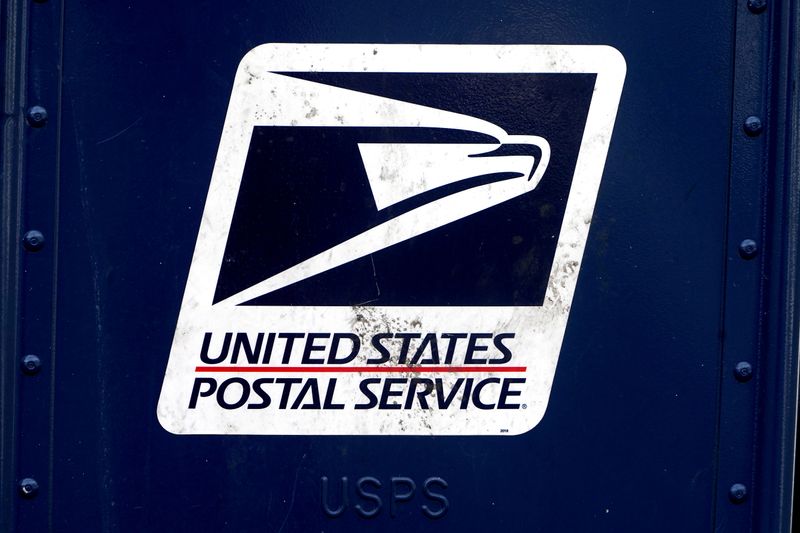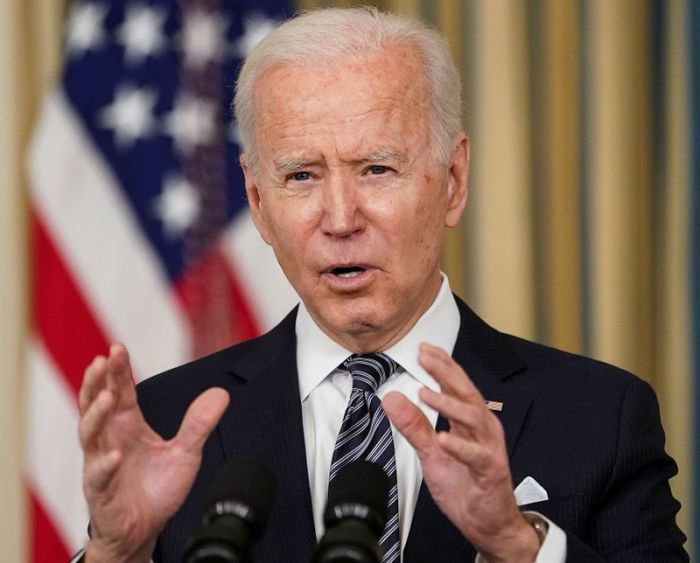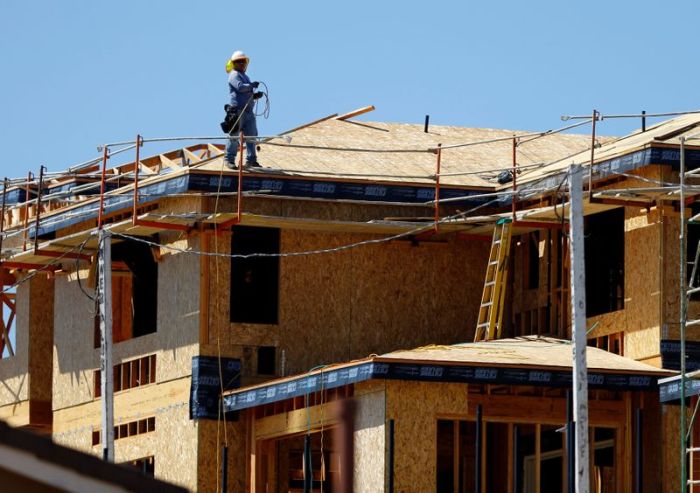WASHINGTON (Reuters) -The U.S. Postal Service (USPS) on Tuesday outlined a proposed 10-year strategic plan that would slow current first-class delivery standards and raise some prices to stem $160 billion in forecasted red ink over the next decade.
The plan would revise existing one-to-three-day service standards for first-class mail letters to one to five days. USPS said 61% of current first-class mail volume would stay at its current standard.
It would shift more deliveries to trucks rather than airplanes, consolidate mail processing and cut hours at some retail locations. The plan assumes $44 billion in additional revenue from price increases, but officials declined to offer further details.
USPS Postmaster General Louis DeJoy, a supporter of former President Donald Trump who was named last year to head USPS, said without changes the Postal Service would need a “government bailout” — something it does not want to seek.
DeJoy acknowledges USPS performed poorly over the holiday season as it was inundated by package deliveries even as first-class mail volume shrank.
USPS needs significant financial relief from Congress and the Biden administration from pre-funding obligations and other changes that could address $58 billion in anticipated losses.
U.S. House Speaker Nancy Pelosi criticized DeJoy’s plan but said Congress will ensure in a forthcoming infrastructure bill “the Postal Service has the resources needed to serve the American people.”
USPS has reported net losses totaling $86.7 billion from 2007 through 2020. One reason for the red ink is that Congress in 2006 passed legislation requiring USPS to pre-fund more than $120 billion in retiree health care and pension liabilities.
Representative Carolyn Maloney, who chairs the committee overseeing USPS, has circulated draft legislation to address USPS financial issues.
DeJoy says current standards are “not achievable.” For the last budget year, average first-class mail service performance was 89.7%, significantly below target.
The plan invests $4 billion to refurbish retail outlets, consolidates some city postal locations and seeks to move more first-class mail by trucks rather than air. USPS does not own its own airplanes.
USPS also said it could commit to an all-electric delivery fleet by 2035 with assistance from Congress — and vows to spend $11 billion on vehicles over the next decade. Earlier this month, USPS said it could electrify its fleet to the “maximum extent” operationally feasible if it received $8 billion in government assistance.
In February, USPS picked Oshkosh Defense for a multibillion-dollar contract to make up to 165,000 delivery vehicles, rejecting an all-electric bid by Workhorse Group.
(Reporting by David Shepardson; additional reporting by Lisa BaertleinEditing by Chizu Nomiyama and David Gregorio)






















